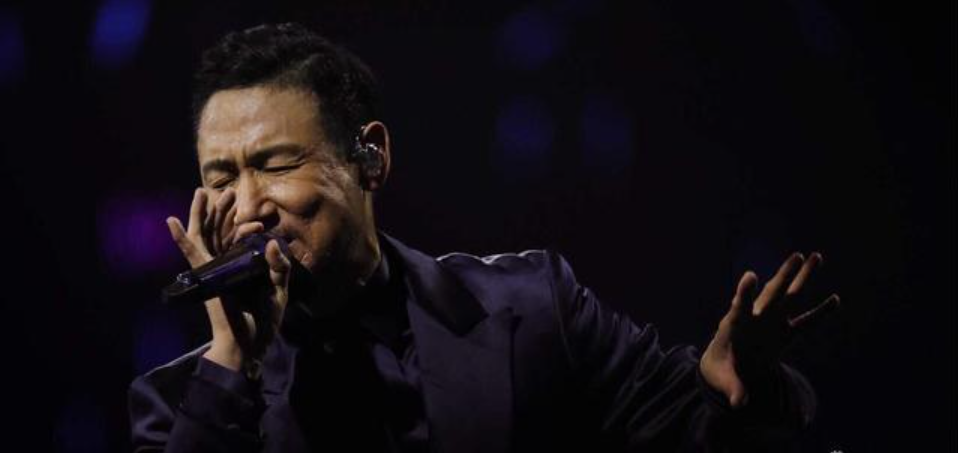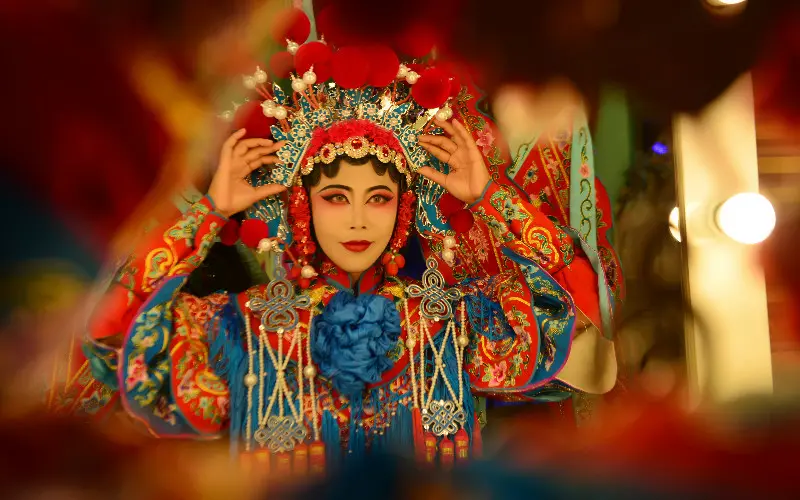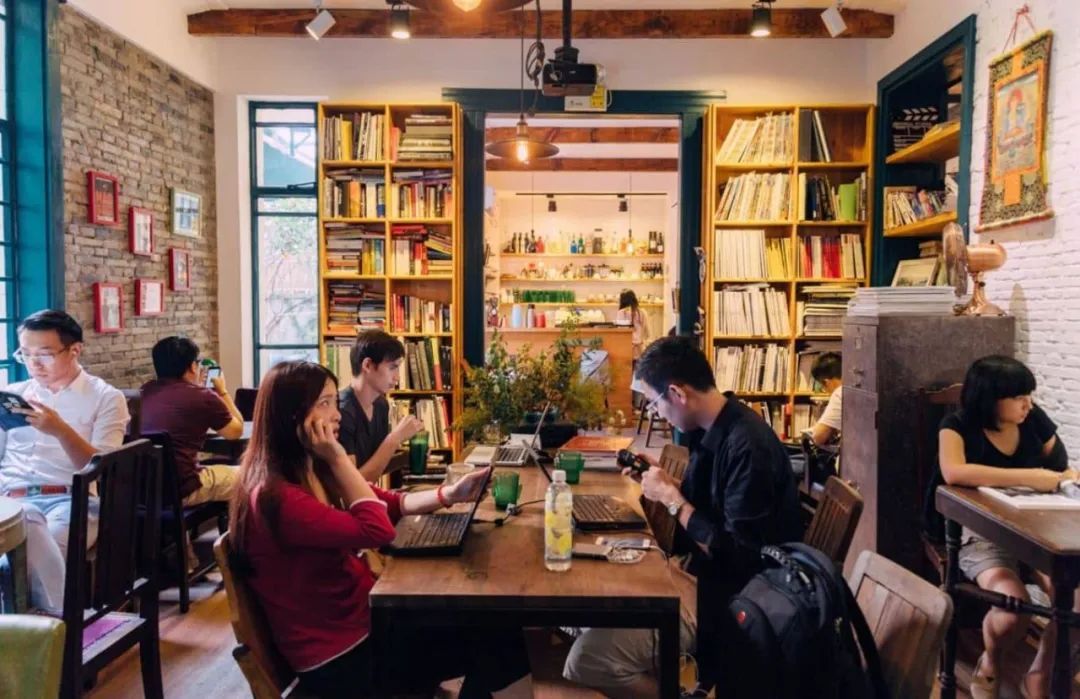
Deformation of the public domain

Two seemingly unrelated things happened recently: singer Jacky Cheung did not mention "patriotism" in his speech on the 25th anniversary of Hong Kong's return, which caused a lot of criticism on the Internet. In the end, he had to make a statement to prove his innocence; Taiwanese singer A lyric in Zheng Zhihua's "The Lights of the Stars", "The current sky is a dirty sky, the stars are in the civilized sky, and can no longer be seen". In the Hunan Satellite TV variety show, it was changed to "The current A sky is a clear sky, and the stars are always visible in the civilized sky.”
I'm not going to discuss the right and wrong of this. For me, the key point is: "Storm in the teapot" like this vaguely reveals a growing "wind" in public spaces in recent years, that is, any public Every word and deed should be absolutely in line with political correctness.
Since any rhetoric that may imply so-called "negative energy" may be scrutinized by countless people, this makes public figures seem to be walking a tightrope every day. What people are interested in is not their outgoing personalities, but asking them to be moral role models—of course, sometimes people don't really think so, but it's just an excuse for black fans or opponents to seize the opportunity to beat them.
After the lyrics of "The Lights of the Stars" were tampered with, countless parodies appeared on the Internet, so many people wondered if this was Hunan Satellite TV's reverse hype, but no matter what, let's sarcastically sneer at the declining TV station, which is safe after all. Perhaps only a few people still remember with sighs that one of the reasons why this media, which is now even lyrical and fearful, was able to become popular in the first place, was that it was extraordinarily daring and dared to brush the ball.
Changes in the trend of the times cannot be accidental. We have indeed witnessed a good time when a hundred flowers bloomed, so that many people judged with joy that China's public space has finally arrived with social prosperity. What followed, however, was a counter-climax: the uproar was not only uncomfortable, but sometimes led to mutual criticism and reporting.
For many people, embracing only one right value is much less psychologically burdensome, and they treat what they don’t like to be like pagans in the Middle Ages: difference can only mean deviation, error, or inferiority. They just don't realize that the disappearance of diversity is not necessarily a good thing, because their own way of life is actually only one of them.
Of course, it is not that no one thought that this is not a good thing, but they are still unable to resist such a trend. Whether they like it or not, they are all caught up in the tide. The question is here: Why is our society so evolved?

This isn't the first time in history -- though not necessarily a repeat, history may indeed rhyme. Guo Anrui noted in "Politics in Culture: Opera Performance and Qing Capital Society" that the Qing Dynasty theater was once a public place full of competition, conflict and controversy, but because it was so important, it became a series of The focus of the moral movement, all actors and repertoires, must conform to the Confucian norms and social moral standards advocated by the imperial court, and must not overstep the boundaries.
However, human nature is like that. The more commercial the performance is, the more the artist's singing on the stage must adapt to and satisfy the tastes and preferences of various spectators at any time. As a result, hypocrisy has generally prevailed. For example, in the repertoire of "Wusong Kills Sister-in-law", while flaunting morality, people can enjoy the intense plot and bloody scenes with peace of mind.
This is because of the special concept of public and private in Chinese society: "public" and "private" are not only the distinction between fields, but also value judgments. Therefore, in the public field, it is necessary to ensure that absolute morality is displayed, and private interests and desires can only be expressed as "" in the name of public". The so-called "refined egoists" of the moment are probably derived from this, and it is easy to condemn them morally, but the question is, is there a better way for them?
When this public morality overwhelms everything, people either "fight for a flash" (meaning the disappearance of the ego), or they can only hold on to themselves in an increasingly cramped private sphere. Yang Xiaoshan said in "The Deformation of the Private Domain":
In China, "public" has always been regarded as a moral norm, as opposed to "private". To suppress and control "private", it is best to transform private into its opposite "public" through moral cultivation or moral education.
He believes that the rise of private gardens lies in the ambiguity of its boundaries, because although it is physically within the family domain, it is spiritually separated from the family domain. This brings about what he calls the "deformation of the private sphere."

At this point, perhaps we have never been modern, at least not as modern as we think ourselves. Inevitably, the present scene is actually still on the extension line of that profound tradition, the latest waves in the long river. If anything, it may be that new subjects are emerging on a large scale that could change the meaning of the public and private spheres.
It's not hard to see that audiences are now more sensitive to these kinds of political correctness than ever before. Since modern times, countless people have worried that "gong" is the most lacking moral element for Chinese people, but it is a must for modernization. At the same time, "private" is no longer completely negative, and at least personal rights and privacy awareness are also on the rise. We may be facing an unprecedented complex situation.
For those beliefs that absolutely cannot be touched, people's moral demands will most likely not subside; however, in other respects, overdoing political correctness has also increased the probability of overturning in the public opinion field, because it violates social norms. common sense.
After the incident of changing the lyrics of "The Lights of the Stars", Hu Xijin commented:
If you create a kind of "political correctness" bit by bit, everyone will be cautious, and every word and every word will become very sensitive, which is not good. That's a misinterpretation of "positive energy", a narrowing of positive energy and ultimately breaking away from the masses.
Positive energy must be generous, and tolerance is great. Songs that were very popular in the 1990s should of course be sung as they are today.
This is a gentle patriarchal tone: some things, you might as well tolerate it, but too much force may be counterproductive. That is to say, it is a kind of self-restraint of "I can manage, but I don't." Although the implied meaning of this is certainly not everyone's favorite, if such a tacit understanding can be formed, it is at least better than no restraint.
What I expect is that everyone can affirm their normal desires (desire for survival, desire for ownership), defend individual rights, think independently, and on the basis of rebuilding such a subject, through active participation, form a new "public" ”, that would be considered a “transformation of the public domain”. It's certainly not new, it's just never done in China, and we'll be "modern" until that day.
Like my work?
Don't forget to support or like, so I know you are with me..
Comment…